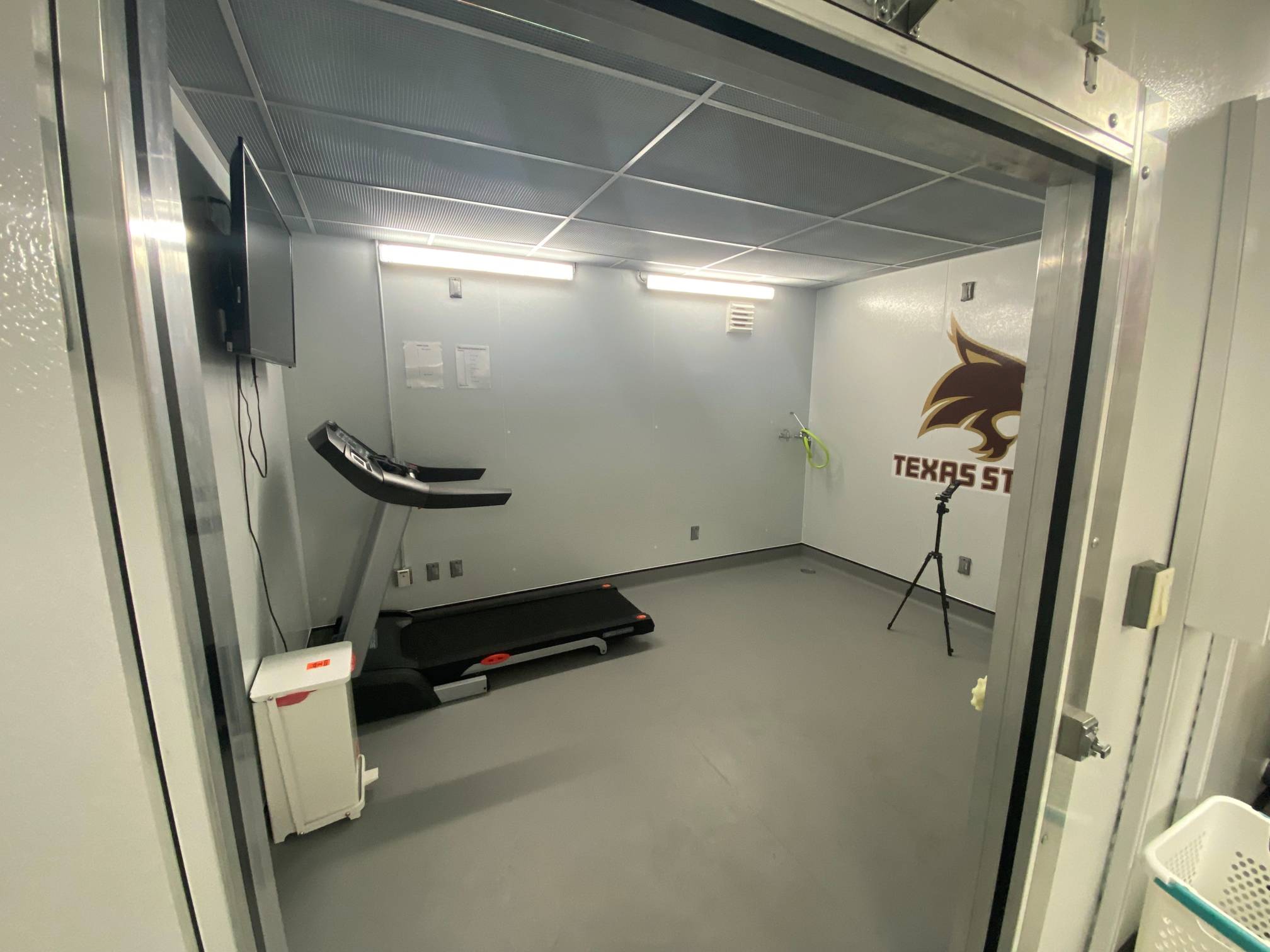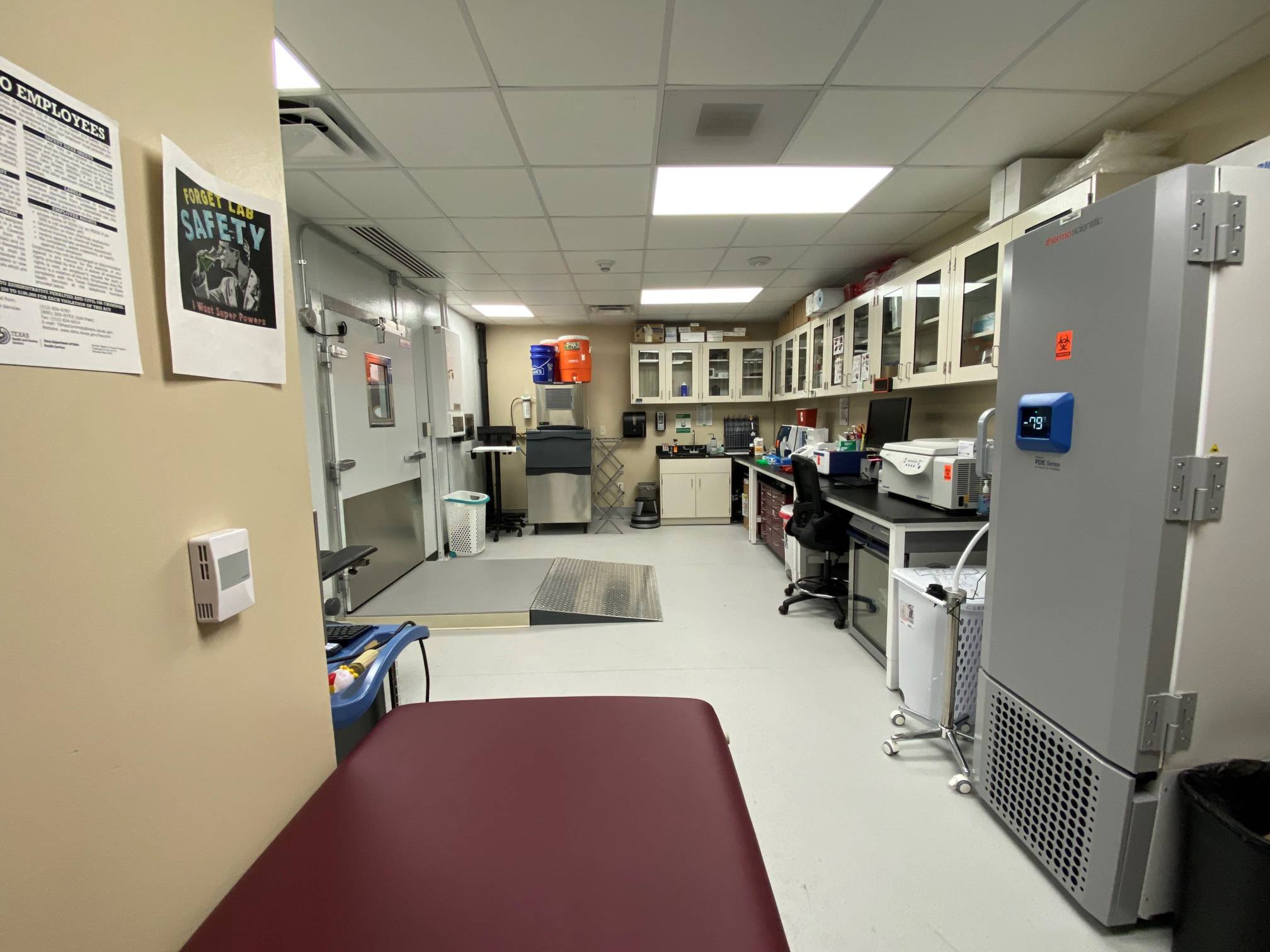Environmental Physiology Laboratory
 |  |
The Environmental Physiology Laboratory (EPL) is located in B131 Jowers Center and under the direction of Dr. Kevin C. Miller (Professor of Athletic Training, Department of Health and Human Performance). Its 650 square feet of lab space is dedicated to the advancement of knowledge in thermal physiology, hydration and electrolyte balance, and heat illness prevention and treatment.
Particularly noteworthy is the presence of a 200 square foot, walk-in environmental chamber. This equipment allows TXST scientists to adjust temperature between 4°C and 50°C and relative humidity between 25% to 90%. The ample square footage and in-chamber restroom allows for long duration studies and sample collections without sacrificing experimental integrity.
In addition to standard exercise equipment (e.g., treadmills) and laboratory equipment (e.g., balances, beakers, graduated cylinders), the EPL contains specialized equipment for the measurement of biological specimens including an OsmoPro Max multi-sample osmometer (Advanced Instruments), Stat Prime Electrolyte Analyzer (Nova Biomedical), HemoCue hemoglobin (HB801) and glucose (#201) analyzers, an Eppendorf 5810R high speed refrigerated centrifuge, an ABS Plus 96-well spectrophotometer (Molecular Devices, LLC), and digital refractometers. Biological specimens can be stored in the EPL’s -80°C Thermo Scientific freezer or Thermo Scientific TSG refrigerator.
The EPL has several thermometers and devices for measuring skin, oral, axillary, forehead, tympanic, esophageal, and rectal temperature. For experiments requiring mobile body core temperature monitoring, the EPL has ingestible temperature capsules that pair with the CorTemp monitoring system. Two Kestrel heat stress trackers (#4400) allow for the measurement of several heat indices.
Muscle and nerve activity can also be measured in the EPL using our wireless BioNomadix system and MP160 data acquisition system (Biopac Systems, Inc). This equipment is often paired with our nerve and muscle stimulation equipment such as a GRASS S48 square pulse electrical stimulators (Natus Neurology) or DS7A constant current high voltage stimulator (Digitimer, LLC).
Contact Dr. Miller for more information on the EPL and how to collaborate with the EPL scientists at kmiller@txstate.edu